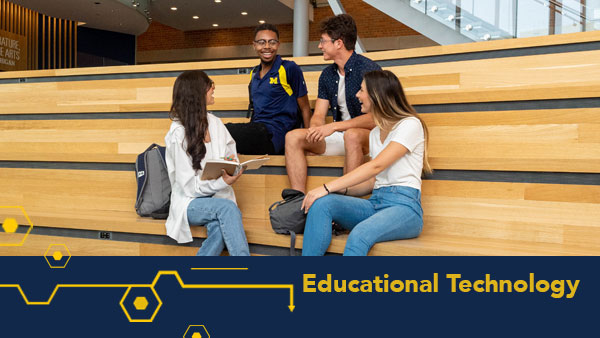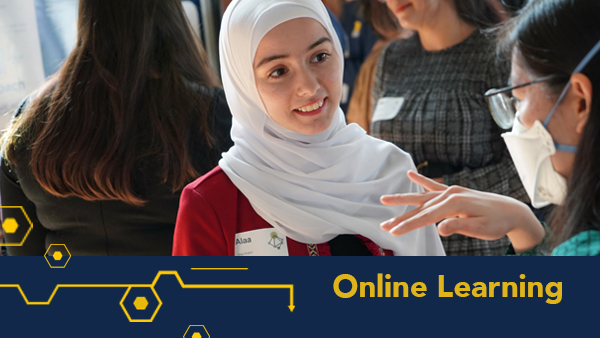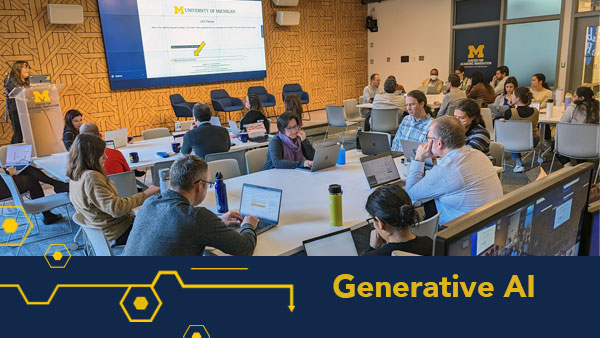Benjamin Morse, Design Manager, University of Michigan
Stephanie Parisi, Associate Director of Instructional Design, Emory University
Rebecca G. Williams, Research Program Manager, Johns Hopkins University
Our world is evolving rapidly and the need to understand complex societal issues and engage in productive and civil discourse has never been higher.
As we make the shift from one decade to the next, we must build and scale new models for public engagement. One thing that the Teach-Ins of the 1960s and 70s taught us is that society benefits when people from different backgrounds come together to solve problems. Today’s issues may be different than those in the past, but one thing is certain, we need more ways to facilitate connections, share information and narrative, and build skills and tools to take action.
In March, 2017, the University of Michigan deployed the first Teach-Outs to bring learners together from around the world to learn about, and discuss, salient social topics and consider actions to take within their own contexts (more at TeachOut.org). In an effort to learn with, and from, other institutions and share their experiences with the Teach-Out model, U-M hosted two Teach-Out Academies in 2018 and 2019.
Since then, five institutions outside of U-M have experimented with creating their own Teach-Outs: Davidson College, Emory University, John Hopkins University, University of Notre Dame and the University of Leiden. Johns Hopkins University will launch their first Teach-Out on January 20, Emory University launching their second Teach-Out on February 17, and the University of Michigan will launch their 30th Teach-Out on January 29.
What is a Teach-Out?
Teach-Outs can be difficult to describe, and depending on who the audience is, that description can vary.
Emory describes Teach-Outs as a modern digital take on University of Michigan’s Teach-Ins. To the creators, they are innovative online events serving as launchpads for discussions connecting voices from around the world. They are where online courses, without quizzes or checkpoints, meet the virtual conference. How, and how much, one participates is left up to the learner. Teach-Outs contain videos, open access resources, discussion questions, and a call-to-action — an opportunity for participants to connect with the topic personally and manifest change in their own way.
Johns Hopkins University describes Teach-Outs as unique learning events whereby experts convene to engage others in broad discussion around key social issues central to our everyday lives and relationships. For both creators and consumers, Teach-Outs offer an opportunity to take part in civil discourse, gather diverse perspectives, participate in a reciprocal learning experience, and galvanize collective action in our local communities. They are both brief and comprehensive by design — developed upon the principles of inclusion, accessibility, and civic engagement — forming a model whereby cross-sectoral collaboration is possible at all levels of our educational institutions.
Let’s take a look at how each institution is approaching this new mode of teaching and learning and learn about three upcoming Teach-Outs.
Firearm Purchaser Licensing Teach-Out: The Background Check Policy Not Enough People are Talking About
Rebecca G. Williams, Research Program Manager, Johns Hopkins University
![]() Johns Hopkins University (JHU) is launching its very first Teach-Out on January 20, 2020. This pilot learning event, Firearm Purchaser Licensing Teach-Out: The Background Check Policy Not Enough People are Talking About, has been a collaborative effort on behalf of the Center for Gun Policy and Research and Center for Teaching and Learning of JHU’s Bloomberg School of Public Health.
Johns Hopkins University (JHU) is launching its very first Teach-Out on January 20, 2020. This pilot learning event, Firearm Purchaser Licensing Teach-Out: The Background Check Policy Not Enough People are Talking About, has been a collaborative effort on behalf of the Center for Gun Policy and Research and Center for Teaching and Learning of JHU’s Bloomberg School of Public Health.
As an institution, JHU has been a long-time proponent of web-based learning launching 91 total courses and enrolling more than 7 million learners across 195 countries since 2012. JHU has certainly succeeded in their efforts to foster a broad and diverse digital learning community around emerging social issues, but in the wake of the tragic 2017 shooting at Marjory Stoneman Douglas high school in Parkland, Florida, the surge of youth activism and rise of the gun violence prevention advocacy movement compelled researchers at the Center for Gun Policy and Research to create the very first massive open online course (MOOC) on gun violence prevention.
As the MOOC’s Project Manager, I began like one would any research project — sifting through existing literature, gathering key insights, and identifying key contributors. It was during my first few weeks of inquiry that I encountered the team at the University of Michigan’s Center for Academic Innovation. After I reached out via email, the team at Academic Innovation set up a time to connect and over the course of just one short video call, they answered my questions and provided resources as they taught me about the Teach-Out model and the design and development processes involved.
I remember ending our conversation feeling inspired. I was immeasurably grateful for their support back then and I still am now because this initial connection was what motivated us to embrace collaboration and rethink how to best reach our desired audience.
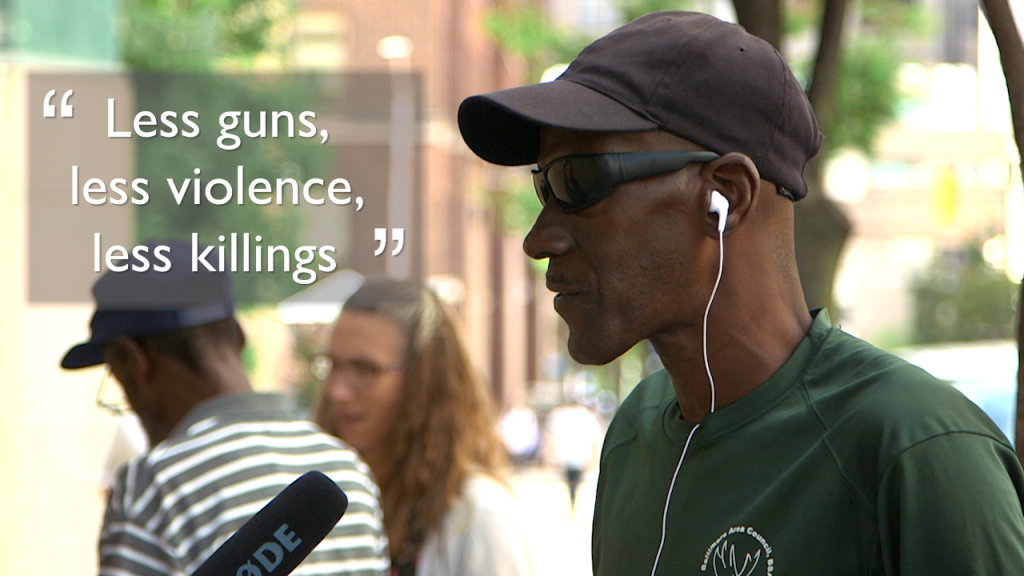
Our goal was to provide youth with the best available science and insights on gun violence as well as the skills to understand which interventions are the most effective. So we at the Center for Gun Policy and Research transcended the confines of the JHU status quo. We involved experts outside of JHU and intentionally curated our content to reach a broader audience than that typical of other JHU MOOCs.
Reducing Gun Violence in America: Evidence for Change incorporates the contributions of more than 20 experts representing organizations and institutions across the country and was promoted to national networks of youth advocates on behalf of March For Our Lives shortly after launching in May 2019. The Center for Gun Policy and Research and the Center for Teaching and Learning, together, redefined the boundaries of JHU’s open education environment and have continued to harness the benefits of collaboration and redefine their role as an institution of higher education through their first adaptation of the Teach-Out model with Firearm Purchaser Licensing: The Background Check Policy Not Enough People are Talking About.
Journeys to Education Teach-Out
Stephanie Parisi, Associate Director of Instructional Design, Emory University
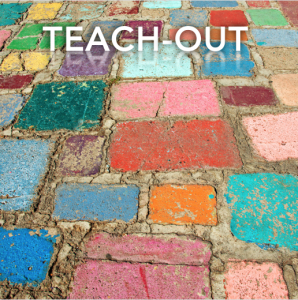 In April 2019, Emory launched their first Teach-Out titled “Making” Progress (read more about that project in this blog). The Teach-Out was integrated with a residential University Course and its development involved several members of the Emory and Atlanta community. The collaboration and creation of the Teach-Out was powerful — just as impactful as the launch of the event. Almost a year later, those connections have generated more collaborations and conversations. Looking back at that experience, we knew we could take it to the next level the second time around.
In April 2019, Emory launched their first Teach-Out titled “Making” Progress (read more about that project in this blog). The Teach-Out was integrated with a residential University Course and its development involved several members of the Emory and Atlanta community. The collaboration and creation of the Teach-Out was powerful — just as impactful as the launch of the event. Almost a year later, those connections have generated more collaborations and conversations. Looking back at that experience, we knew we could take it to the next level the second time around.
The selected topic of the Teach-Out is crucial, as is its connection to events and expertise on campus. This year, we chose to base our Teach-Out on themes from Emory’s Common Read, Educated by Tara Westover. The Journeys to Education Teach-Out has collected perspectives from faculty, students, staff, administrators, and community members, including Richard Blanco, fifth presidential inaugural poet. Our hope is that participants will reflect upon their own unique educational journeys and consider sharing them as part of a larger conversation about the many ways individuals experience education in different stages of their lives. With the Teach-Outs, Emory’s motivation has been to facilitate conversations around difficult topics and promote the respectful sharing of perspectives. We care deeply about and are committed to community engagement and social impact.
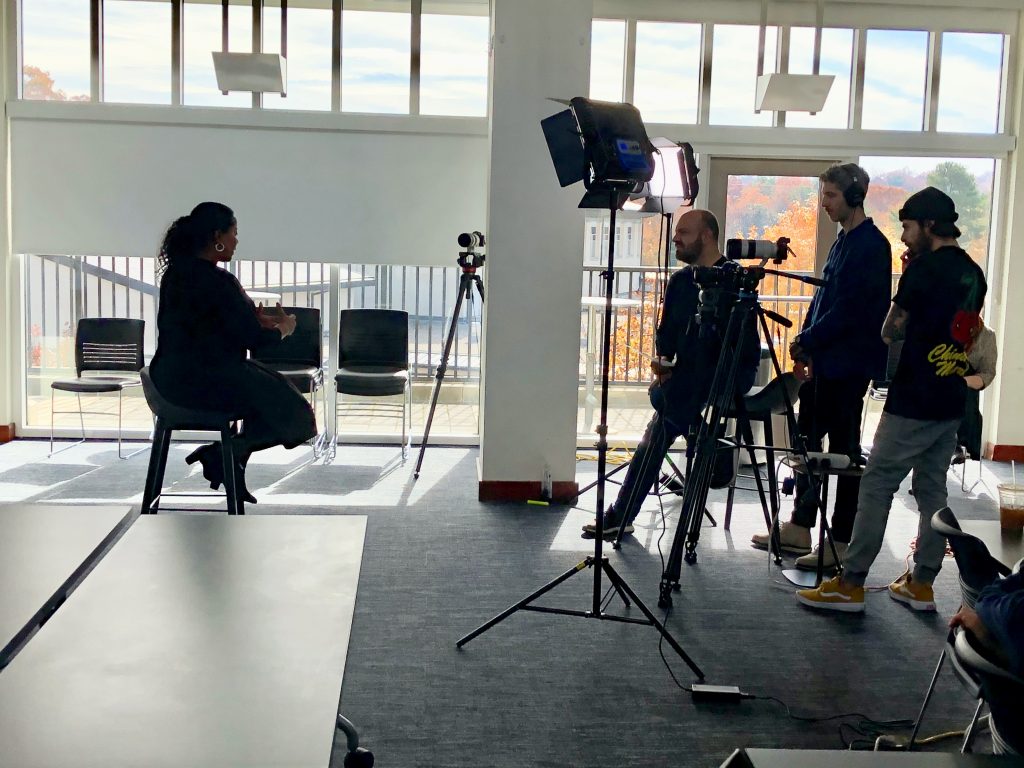
Why Iowa? A Primer on Primaries and Caucuses Teach-Out
Benjamin Morse, Design Manager, University of Michigan
 Since March 2017, the University of Michigan has launched 29 Teach-Outs on four platforms, collaborated with more than 250 academic and non-academic experts, and engaged with more than 88,000 learners from around the world using this model. On January 29, 2020, we will launch our 30th Teach-Out, the Why Iowa? A Primer on Primaries and Caucuses Teach-Out, on Coursera. This Teach-Out will delve into the history and processes of the U.S. presidential primary elections and will provide learners resources and strategies to get involved in their own contexts.
Since March 2017, the University of Michigan has launched 29 Teach-Outs on four platforms, collaborated with more than 250 academic and non-academic experts, and engaged with more than 88,000 learners from around the world using this model. On January 29, 2020, we will launch our 30th Teach-Out, the Why Iowa? A Primer on Primaries and Caucuses Teach-Out, on Coursera. This Teach-Out will delve into the history and processes of the U.S. presidential primary elections and will provide learners resources and strategies to get involved in their own contexts.
This Teach-Out will also serve as a springboard into the 2020 election year in the U.S. and will kick-off our Center’s efforts to create a range of open online learning experiences focused on U.S. politics and civic engagement. On October 15, 2020, the University of Michigan will host a presidential debate just prior to the November general election. This is a tremendous opportunity for the university community to engage in shaping democracy and this initial Teach-Out is one way that we will connect University of Michigan scholars with engaged citizens.
Conclusion
These three examples of the Teach-Out model highlight the potential for innovative universities to develop and design novel modes for teaching and learning. We hope that you join us, both as a learner and a teacher, in these Teach-Outs to help reimagine how we connect with one another in the digital age and what we can do as a society to solve our most pressing issues. In our collective experience, fostering these connections requires commitment to the core tenants of the Teach-Out model: bringing diverse perspectives together to learn about, discuss, and consider action, all built on a strong foundation of shared values and trust.
Author Bios
Rebecca G. Williams
 In her role as a core member of the Johns Hopkins Center for Gun Policy and Research (JHCGPR) study team, Rebecca’s work is central to gun violence prevention research translation. At JHCGPR, she is responsible for managing the design and development of open education initiatives which first began with the first gun violence MOOC, Reducing Gun Violence in America: Evidence for Change. Rebecca attended University of Michigan’s 2019 Teach-Out Academy and is the Program Manager for Johns Hopkins University’s inaugural Teach-Out on Firearm Purchaser Licensing:The Background Check Not Enough People are Talking About. Learn more about her work by reading her full bio here.
In her role as a core member of the Johns Hopkins Center for Gun Policy and Research (JHCGPR) study team, Rebecca’s work is central to gun violence prevention research translation. At JHCGPR, she is responsible for managing the design and development of open education initiatives which first began with the first gun violence MOOC, Reducing Gun Violence in America: Evidence for Change. Rebecca attended University of Michigan’s 2019 Teach-Out Academy and is the Program Manager for Johns Hopkins University’s inaugural Teach-Out on Firearm Purchaser Licensing:The Background Check Not Enough People are Talking About. Learn more about her work by reading her full bio here.
Stephanie Parisi
 Stephanie supports faculty as they prepare to design and teach online, hybrid, and blended courses at Emory University. She collaborates with faculty to envision massive open online courses (MOOCs) for the Coursera platform and also serves as an advisor for instructional design and eLearning development. She has been at the forefront of several innovative teaching projects, most recently the Teach-Out initiative. Formerly with the Center for Faculty Development and Excellence, Stephanie now serves as the Associate Director of Instructional Design with Goizueta Business School at Emory.
Stephanie supports faculty as they prepare to design and teach online, hybrid, and blended courses at Emory University. She collaborates with faculty to envision massive open online courses (MOOCs) for the Coursera platform and also serves as an advisor for instructional design and eLearning development. She has been at the forefront of several innovative teaching projects, most recently the Teach-Out initiative. Formerly with the Center for Faculty Development and Excellence, Stephanie now serves as the Associate Director of Instructional Design with Goizueta Business School at Emory.
Benjamin Morse, Design Manager
 Benjamin facilitates the work of the Center for Academic Innovation by managing the scoping, design, and development of Teach-Outs (more at teachout.org) and other learning initiatives at the Center to deliver high-quality online learning experiences with an emphasis on public engagement and actionable outcomes. (Full Bio Here)
Benjamin facilitates the work of the Center for Academic Innovation by managing the scoping, design, and development of Teach-Outs (more at teachout.org) and other learning initiatives at the Center to deliver high-quality online learning experiences with an emphasis on public engagement and actionable outcomes. (Full Bio Here)
